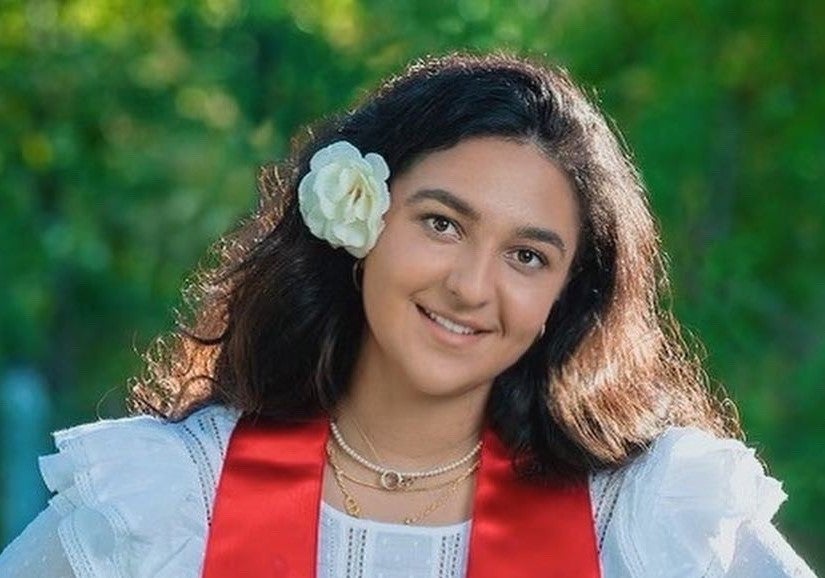This training [on adultification bias] was extremely valuable and helpful for my understanding as well as my colleagues’ understanding of the disproportionate impact of the juvenile justice system on Black girls. In particular, the presentation’s focus on the data, research, and lived experience of Black girls who enter the juvenile justice system underscored for me the need for prosecutors to be very intentional in the way we and other actors in the system think about and approach cases involving Black girls.
Most importantly, this training has given me, as a leader, practical tools to ensure that Black girls in my jurisdiction are seen, heard, treated equitably, and empowered by the justice system rather than harmed by it.
Kevin Fleming
Assistant County Attorney | Director, Youth Justice and Wellness Division, Office of the Ramsey County Attorney (MN)

I am incredibly grateful to the Center for their report, “Girlhood Interrupted.” Often, we talk about Black girls from the anecdotal lens, and that’s critically important. We need to hear the voices of Black girls, and that’s what the Center does. It elevates those voices, but then it marries that narrative from Black girls impacted by data and qualitative and quantitative research.

Kristin Henning
Blume Professor of Law, Georgetown University Law Center; Director, Juvenile Justice Clinic and Initiative at Georgetown Law
The Center’s work over the past decade has been profoundly influential. It has influenced courts and has been cited in opinions repeatedly. It’s influenced scholarship—the amount of times its research has been cited in books and articles is incredibly striking. It’s also influenced popular discourse. It’s really a model of the kind of engaged scholarship that we encourage at Georgetown Law and is at the heart of what we do. I applaud everybody involved in the Center and what they’ve done over the past decade, and I can’t wait to see what they do in the years ahead.

William M. Treanor
Dean & Executive Vice President Georgetown University Law Center
One of the best parts of my Georgetown experience was my time at the Center, which I joined as an RA after my 2L year. While there, I researched and wrote on various issues, including School Resource Officers, school discipline, adultification bias, and restorative justice. The Center gave me an opportunity to hone my legal research and writing skills while focusing on issues related to girls of color. The most meaningful part of my G’town experience was working with the inspiring lawyers, scholars, and partner organizations and the youth advisors, who make the Center special.

Rhea Shinde
Georgetown University Law Center, Class of 2021
If I think of the ten years of this work [on marginalized girls], a word that comes up is ‘visibility;’ [and] thinking about the problems of girls in a world that’s been so much about boys. It’s come from an idea, grown, and become nationally known.

Peter Edelman
Faculty Director and Carmack Waterhouse Professor of Law and Public Policy, Georgetown University Law
I joined the School for Girls of Color’s Youth Advisory Council Committee because I thought it would be a good opportunity for me to learn about topics affecting young people of color and be a part of a group of people who look like me. I’ve been able to learn about something I had never even heard of before, improve my public speaking skills in a setting that was previously unfamiliar to me, and help to create a way to advocate for young people dealing with reproductive injustice.

Chailea Harvey
Youth Advisory Committee Member
I was able to see firsthand the impact the Center has on the girls we work with. From providing policy recommendations to high-ranking White House staffers to speaking before law school audiences, the Center’s programming offers invaluable opportunities for girls and gender-expansive youth of color to gain the skills and confidence necessary to be powerful advocates. Working at the Center after college motivated me to attend law school with the intention of pursuing a career dedicated to expanding the expansion of rights for marginalized communities.

Toella Pliakas
Former Youth Engagement Fellow and Program Coordinator
Being part of the Center on Gender Justice & Opportunity at Georgetown Law has allowed me to help others, specifically girls and young women of color like myself. I say this, and I mean it: the Center has changed my life. I was given a gift: to help other girls of color fight issues like mental health at the same time that I was dealing with my mental health struggles. I found my voice and a purpose. I found a passion and a sense of belonging.

Belén Buckley
Former Youth Advisory Committee Member
Critical pieces of research from the Center on Gender Justice and Opportunity at Georgetown Law have been instrumental to my academic endeavors and my development of self. Throughout my years at Brown University, the reports “Girlhood Interrupted: The Erasure of Black Girls’ Childhood” and “The Sexual Abuse to Prison Pipeline: The Girls’ Story” helped unveil the unique drivers of Black girls’ incarceration… The reports helped put language to many of the experiences I witnessed in my own Black girlhood. These reports are validating and allow so many Black girls to feel seen. This kind of work coming out of the Center is the impetus for change — especially for those whose stories are not fully told.

Kimberly Collins
Brown University, Class of 2022

As the Center’s first Storyteller in Residence, I’m so grateful for the opportunity to work with and learn from the Center. Working on different projects with the Center has shown me how storytelling affects people and how powerful words are. It’s been an honor to work with the Center, and it’s instilled so much in me throughout the journey!

Logan Green
Inaugural Youth Storyteller in Residence
Share Your Experience
What impact has the Center had on your life? Why is it important that the Center continue pursuing its mission of working to eliminate gender and racial disparities in education, healthcare, and the justice system?
We’d love to hear from you and feature your testimonial on this site.
Share your experience.


